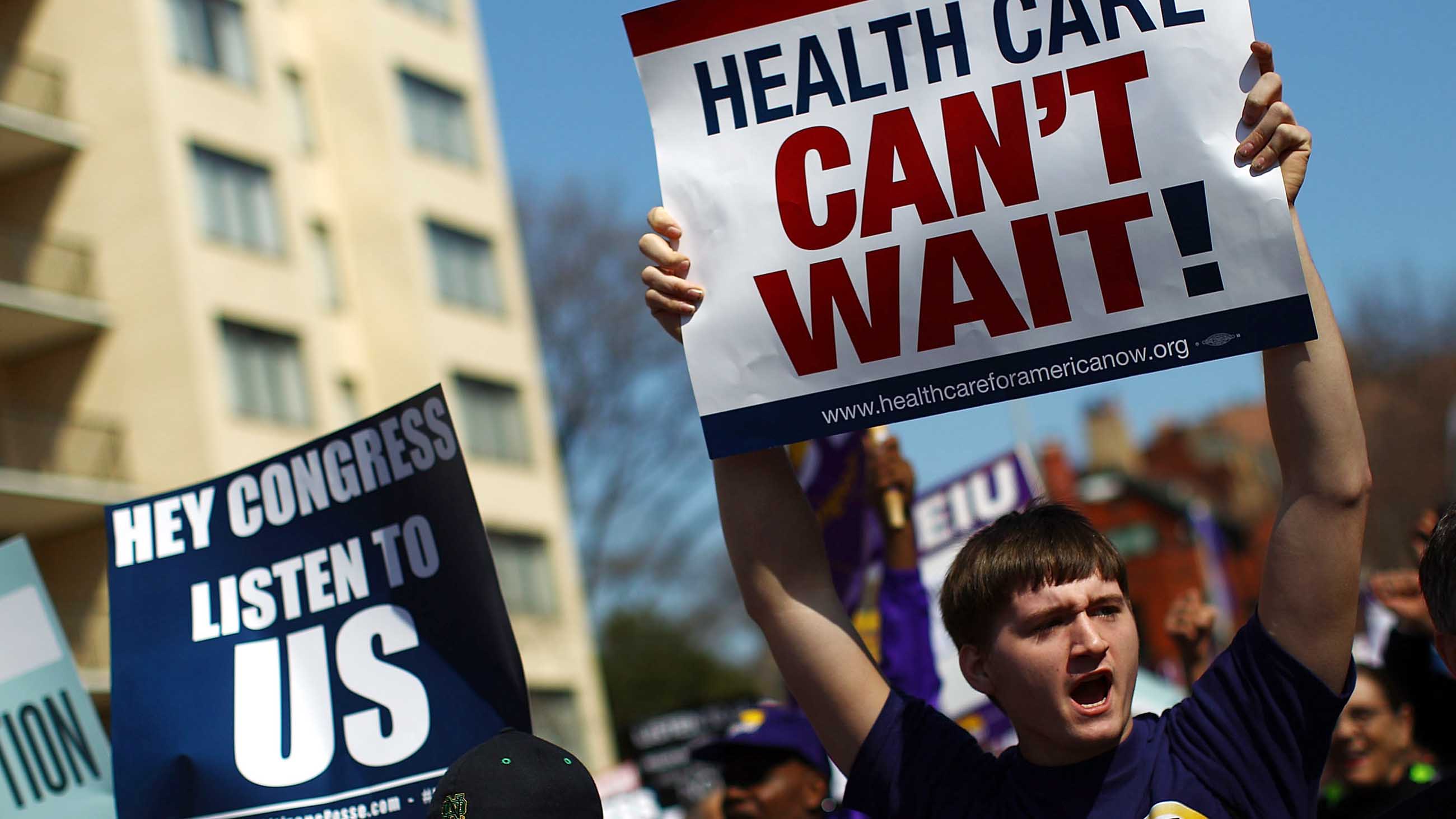‘Young Invincibles’ Would Be Vulnerable Under Trumpcare
Young adults are the nation’s strongest supporters of Obamacare, according to a poll conducted last month. And a new study suggests that they are not likely to be satisfied with any replacement for it — even though Republicans have promised to retain the popular Obamacare provision that allows parents to keep their children on family insurance plans until age 26.

That’s because any Trumpcare measure — whether the American Health Care Act, narrowly adopted by the House last month, or the bill being worked up in secret in the Senate — will eliminate the individual mandate for insurance coverage. And that, in turn, means fewer young adults would remain enrolled in their parents’ family plans.
Insurance companies sometimes refer to 18-to-29-year-olds who forgo health insurance as “young invincibles.” But plenty of evidence suggests that this group gets sick and seeks medical attention for chronic conditions like asthma, depression, and diabetes (more than one in four adolescents suffer from such conditions); wellness screens like pap smears; and accidents and injuries. They likely need insurance to cover those high costs, and insurance is correlated in previous studies with better health outcomes.
In the new study, Lauren Wisk, a pediatric health services researcher, and her colleagues looked at a sample of more than 131,000 adolescents and young adults in Maine, Massachusetts, and New Hampshire to determine how many fell off their parents’ health plan between 2000 and 2012. Starting in 2007, all three states allowed adults up to age 26 to stay on their parents’ insurance, but only Massachusetts added other reforms at that time, including the individual mandate. Then in 2010, some Obamacare provisions making it easier for kids to stay on their parents’ health plans went into effect nationwide, modifying the insurance landscape in New Hampshire and Maine for the last years of the study period.
Adolescents and young adults in the sample are 23 percent less likely to drop off their parents’ health plans if a broader set of reforms is in place, including the individual mandate, than they are if the only reform is the up-to-26 provision, the analysis revealed.
And under the broader reforms, young people stay on their parents’ plans longer and are more likely to get back on the plans if they previously dropped off it. The results were published on May 30 in the journal Health Services Research.
The research cannot separate the influence of the individual mandate from other Obamacare reforms, like Medicaid expansion — which may be encouraging young adults to leave their parents’ policies and get their own insurance. If such effects could be separated, “we might see even greater effects of the individual mandate,” says Wisk, who has a joint appointment with Harvard Medical School and Boston Children’s Hospital.
The Trumpcare plan passed by the House has its own lever to substitute for the individual mandate — a sharp premium increase for people who buy insurance after letting it lapse for 64 days or more. But that could backfire: Young adults often have lapses in coverage due to job searches and moves after graduation, and the hike “could be so large that some individuals might say, ‘It’s not worth it for me to get insured,’ even if they want to have insurance coverage,” Wisk says.
Trumpcare supporters in Congress, almost all of whom are Republicans, might mull this over. Because even though young people tend not to vote Republican (if they vote at all), it’s safe to assume that parents won’t be happy to see their kids join the ranks of the uninsured.










Comments are automatically closed one year after article publication. Archived comments are below.
what a bunch of effing garbage you are peddling with this propaganda site